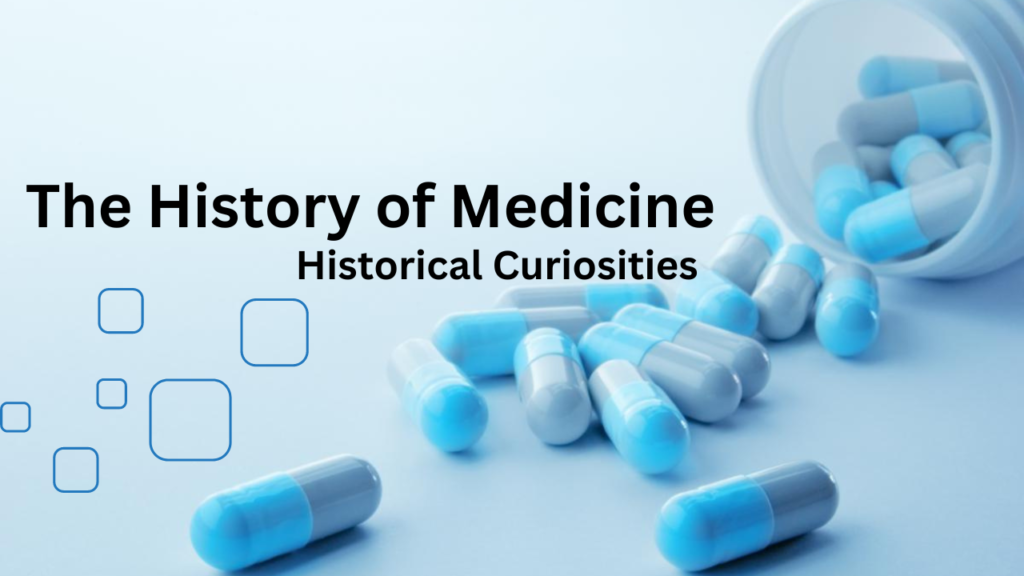
The history of medicine began years ago with the healing and treatment of disease it has always been a mainstay of human life since the earliest humans’ medicine has constantly evolved shaped by technological breakthroughs.
scientific discoveries and cultural changes we can temporarily state that Humanity has only been able to evolve thanks to medicine and its ability to combat disease and illness the earliest documents on medical practices are more than 4,000 years old with evidence found at archaeological sites in Egypt.
Mesopotamian aspiring Physicians use plants minerals and other materials to treat illness and injury often using religious rituals in their treatments among the earliest known medical texts are the Edwin Smith Papyrus from the 17th century BC and the Ebers Papyrus from the 16th century BC describes multiple diseases in their treatments.
the texts were found in excavations in ancient Egypt and named after the researchers Edwin Smith an American Antiquities dealer and collector George Ebers a German Egyptologist and novelist.
Ancient Greece
Greece had a lasting impact on the history of medicine a Greek named Hippocrates often known as the father of medicine was born on the island of the coast in 460 BC he believed that diseases had natural causes and that Physicians should understand the environment.
- Hippocratic Oath:
The conditions and Lifestyles as factors in the medical writings of Hippocrates known as the Corpus Hippocraticum is the Bedrock of modern medicine among them is the world’s famous Hippocratic Oath a solemn oath that Physicians traditionally take when they complete their higher medical training this includes several promises among them the protection of human life the preservation of medical confidentiality the intent to never intentionally harm patients and a commitment to education and continuous improvement in their medical practice ancient Rome also had considerable influence on the history of Medicine.
- Galen:
Galen a Greek physician who lived in Rome was an advocate of observation and experimentation he performed dissections on animals and established an advanced understanding of human anatomy his Works profoundly influenced Medical Practice in the Western and Eastern world.
In the Middle Ages medicine was often practiced by monks and Priests who commonly treated illnesses with prayer and religious rituals but developments in these areas such as pharmacology surgery and Anatomy continued.
Middle Ages:
the Persian physician Avicenna wrote the Canon of Medicine in the 11th century one of the most influential medical texts in history medical Knowledge from the Middle Ages was also preserved and developed by Islamic scholars who translated ancient texts and carried out research in fields such as plastic surgery and Ophthalmology the Renaissance period renewed interests in medicine and science Physicians such as Renaissance.
Andreas Fasalius performed dissections on humans finding accurate information on the human body’s Anatomy William Harvey discovered blood circulation in 1628. there were also significant breakthroughs in Pharmacology discovering new drugs and chemicals to treat diseases the 19th century was a period of great leaps forward in medicine with many new treatments and Technologies in 1847 iguanas simowice.
Modern Age :
Discovered that hand washing could prevent disease transmission a significant breakthrough in preventing hospital actions Louis Pasteur discovered the existence of microbes and the relationship between these organisms and pathologies helping to lay the foundation for microbiology and Immunology.
Anesthesia also made it possible to perform more complex surgeries and significantly reduce the associated pain and suffering.
In the 20th century medicine underwent major transformations in many areas including genetics pharmacology surgery and medical technology Alexander Fleming’s discovery of penicillin in 1928 began a new era in the fight against infectious diseases saving millions of lives.
Imaging techniques such as computerized tomography and magnetic resonance imaging made it possible to see inside the human body helping to diagnose diseases and injuries gene therapy with modification to an individual’s DNA to treat genetic diseases also began to be developed in the late 20th century in the 21st-century medicine has continued to evolve rapidly with strides in such areas such as nanotechnology artificial.
Intelligence and biotechnology new treatments for diseases such as cancer and autoimmune diseases are being developed personalized medicine which considers individual differences in genes environment and lifestyle is increasingly common the recent Global Health crisis in 2020.
Stressed by the ongoing importance of Medical Research and Innovation scientists and doctors have worked tirelessly to develop effective vaccines and treatments for diseases the history of medicine is made up of discoveries Innovations and meaningful progress that has shaped the way we treat and prevent disease from the earliest methods in ancient times to the technological and medical breakthroughs of today medicine has constantly evolved saving and improving the quality of life for millions of people around the world.